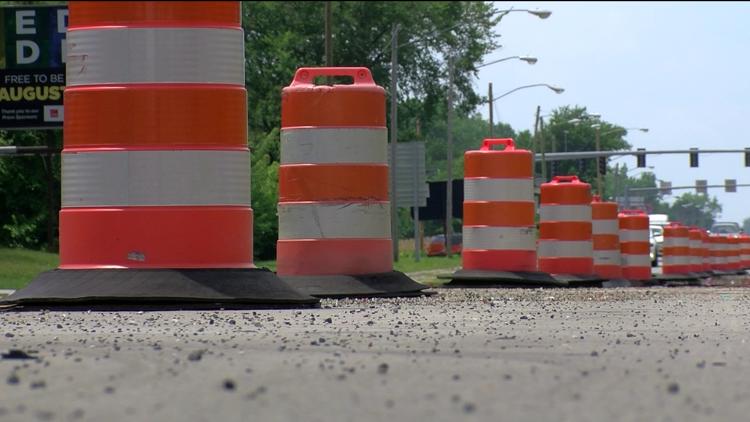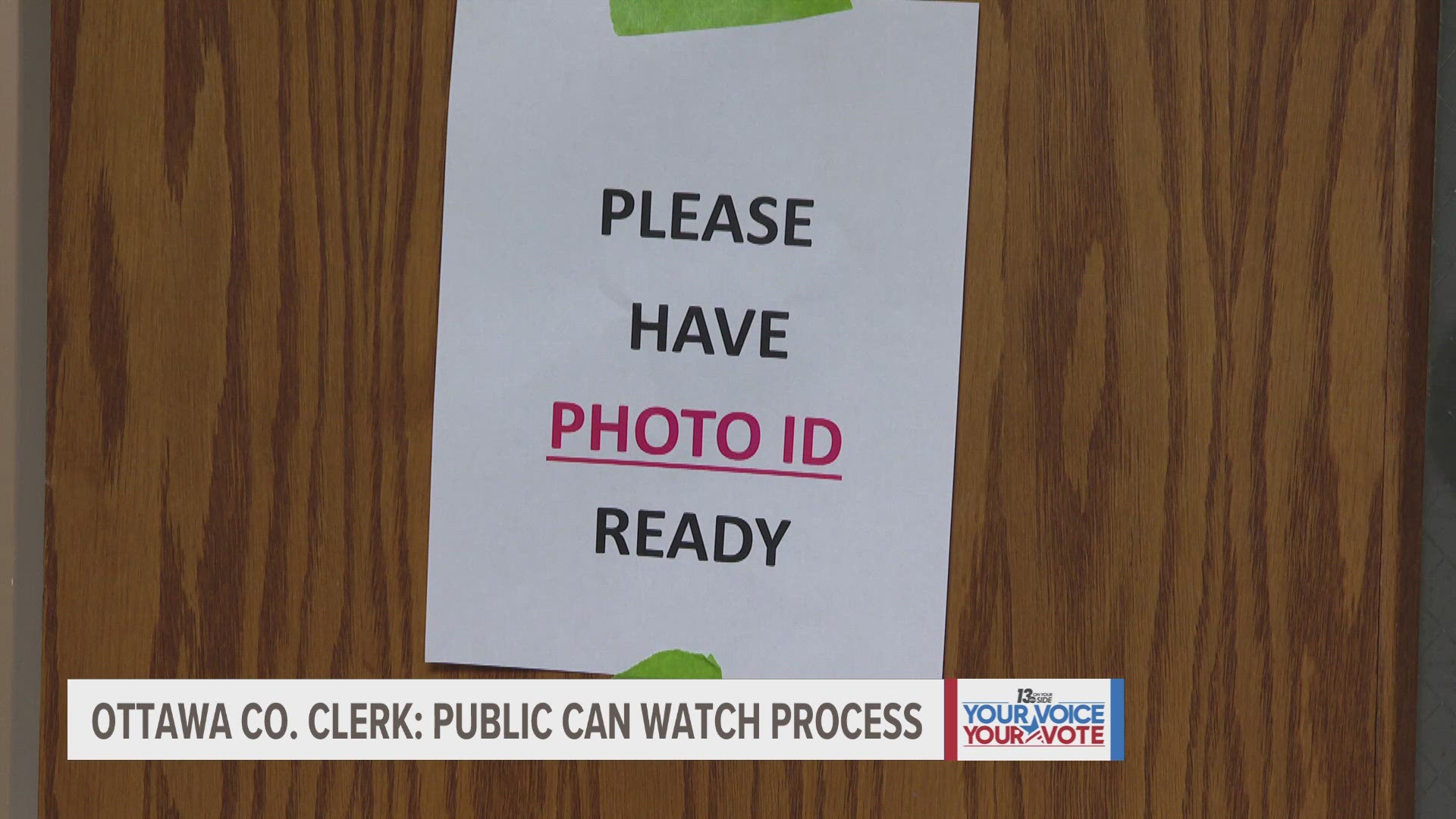OTTAWA COUNTY, Mich. — The Ottawa County Road Commission is hoping voters countywide will approve a road millage renewal on the ballot this August.
In 2014, Ottawa County voters passed a countywide road millage of .5 mills for 10 years, lasting from 2015-2024.
"We've been able to utilize those dollars quite a bit over the last 10 years and made some significant investments on our road network," Alex Doty, communications administrator for the Ottawa County Road Commission told 13 ON YOUR SIDE in May. "We're just asking voters to consider extending, or renewing that millage for another 10 years, so we can continue that progress."
On Aug. 6, voters have the opportunity to approve the millage for the next 10 years, from 2025-2034.
The road commission put together some FAQs to help voters make their decision:
Q: What is the Ottawa County road millage?
A: The Ottawa County road millage is a property tax levied to fund road improvements and maintenance within the county. The millage was initially approved by Ottawa County voters in 2014 for 10 years (2015-2024).
Q: What is the official ballot language?
A: "Shall the current countywide road millage rate, as approved by the voters in 2014, be renewed at a reduced rate for a period of ten (10) years beginning in the 2025 calendar year and ending December 31, 2034, as provided for by Section 6 of Article IX of the Michigan Constitution of 1963, for the sole purpose of funding the reconstruction, resurfacing, and preventative maintenance of public roads and streets within Ottawa County?
The current countywide road millage rate is 0.4767 mills. Based on Headlee rollbacks, the estimated reduced millage rate in 2025 will be 0.4578 mill (approximately Forty-Six Cents ($0.46) of each One Thousand ($1,000) Dollars of Taxable Value) assessed against taxable property within the County of Ottawa, Michigan. If approved and levied in its entirety in the first year of authorization, this millage will raise an estimated $7,142,000. In accordance with State law, the countywide road millage will be disbursed to the Ottawa County Road Commission, the Cities of Coopersville, Ferrysburg, Grand Haven, Holland, Hudsonville, and Zeeland, and the Village of Spring Lake."
Funds for each local township project will be distributed to the Ottawa County Road Commission, and 100 percent of the millage funds collected within a specific township will be used exclusively in that township.
Q: What does the millage renewal involve?
A: The renewal involves continuing the road millage for another 10 years (2025-2034) at an adjusted rate of .4578 mills, which is approximately $0.46 per thousand dollars of taxable valuation.
Q: How much will the renewed millage cost property owners?
A: The renewed millage rate is estimated to be approximately $0.46 per thousand dollars of taxable valuation. For example, if a property has a taxable value of $100,000, the annual cost would be about $46.
Q: Why isn't current state funding enough to fund road improvements?
A: State road funding has not kept pace with the increasing costs of road construction and maintenance due to inflation and rising material costs. Additionally, fuel-efficient vehicles consume less fuel, which reduces revenue from fuel taxes—a primary source of state road funding. Improving Michigan’s roads will take a variety of funding sources including federal, state and local money to improve road conditions.
Q: Where will the millage funds be spent?
A: 100 percent of the millage funds collected within a specific township or city will be used exclusively in that township or city. That means funds will stay in the community they're collected in, funding local projects directly in those communities.
Q: What types of local road projects will the millage funds support?
A: Funds will be used to improve higher traffic volume roads that balance mobility and land access. This includes addressing pavement condition, capacity and congestion issues, crash history, and maintenance problems.
Q: How are local road projects selected for funding?
A: Projects are selected based on several factors, including:
- Pavement condition
- Capacity and congestion issues
- Crash history
- Maintenance problems
- Availability of other funding sources
Q: Is public input considered in the project selection process?
A: Yes, public involvement and input are a vital part of the project selection process for selecting high traffic volume roads for maintenance. Community feedback helps determine priority and ensures that the selected projects meet the needs of residents.
To learn more about the proposed renewal, click here.
►Make it easy to keep up to date with more stories like this. Download the 13 ON YOUR SIDE app now.
Have a news tip? Email news@13onyourside.com, visit our Facebook page or Twitter. Subscribe to our YouTube channel.
Watch 13 ON YOUR SIDE for free on Roku, Amazon Fire TV Stick, Apple TV and on your phone.



